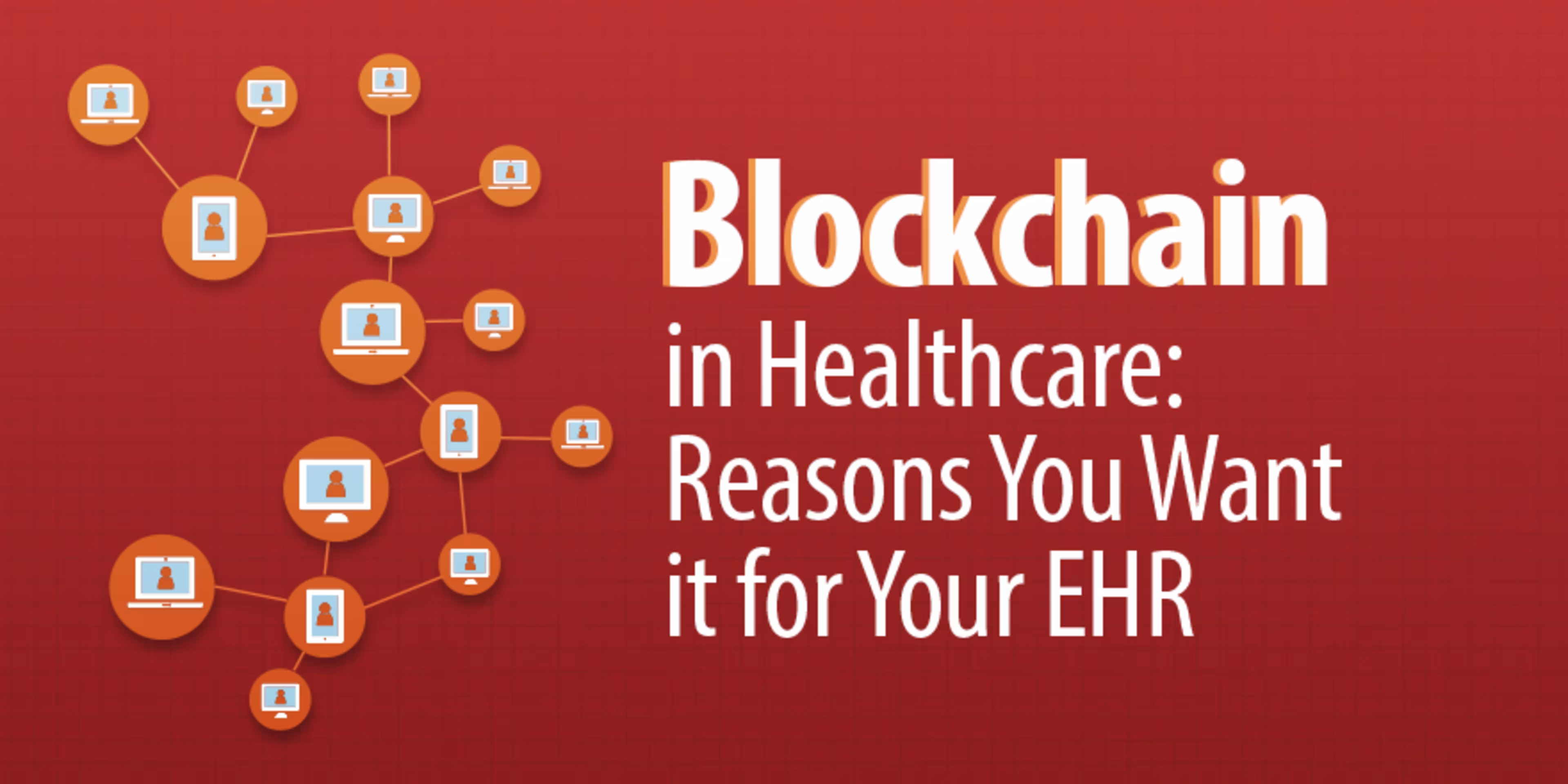In 2011, doctors gave Greg Jarząbek's mother three months to live. She had pancreatic cancer, which has a five-year survival rate of seven percent.
Jarząbek left his new job at an investment bank to fly around the world seeking the most accurate diagnosis and effective treatment. His effort gave his mother seven more months of life than expected.
In the course of his travels, Jarząbek realized that few patients are lucky enough to live in close proximity to the best specialists or have the resources to travel around the world to find them.

So, he started TrustedHealth, which virtually connects patients who have life-threatening or rare diseases to the best specialists for their specific needs. Like telemedicine on steroids, it enables virtual conversations and knowledge sharing while simultaneously gathering data for further research.
TrustedHealth does all this using the Ethereum blockchain.
Blockchain in healthcare: What it means for EHRs
More and more companies are empowering patients to access medical information and services anywhere, digitally and securely on the blockchain.
“Blockchain is booming in clinical trials right now," says Maria Palombini, director of emerging communities and initiatives development at the IEEE Standards Association.
Blockchain is one of the top 10 most searched topics by Gartner clients. In September 2017, HealthcareITNews published “Why blockchain could transform the very nature of EHRs." And Bruce Broussard, CEO of Humana, described blockchain as the next big healthcare technology innovation.
Despite all this promise, fewer than five percent of healthcare provider CIOs and only 12% in the payer industry have blockchain in their written business plans (research available to Gartner clients only).
A survey of 3,700 physicians found that nearly half (47%) of respondents are not aware of blockchain technology.
Don't be like these doctors.Blockchain technology is changing theEHR, whether you're ready or not.
There are three primary reasons you should consider an EHR that uses a blockchain:
Better privacy protections
Easier and more efficient information exchange
More patient control over their data
Let's take a deeper look at three blockchain healthcare use cases in order to illustrate how doctors can benefit from an EHR that incorporates blockchain.
1. Better information security
Today's healthcare challenges and how blockchain can help solve them
At its core, a blockchain is an immutable ledger. Because nothing can be changed in secret, a blockchain guarantees data provenance: where health records have been stored and who has accessed and edited them.
A blockchain-based system makes manipulating or falsifying health data impossible because “the hashes will not match—you mathematically prove the integrity of the data," Robert Barkovich, CEO of Health Linkages, explains.
For this reason, blockchain has the potential to improve security and privacy protections for precision medicine as well.
By recording tests, results, medical billing, and payments in an immutable ledger, the blockchain can reduce fraud and even save money by decreasing the time and labor currently used to track that information through various systems.
"Blockchain lets us agree on history, even if we don't all agree or trust each other," Barkovich says. “There's no need for a trusted third party—it's all there in the chain."
And better information security can also mean safer patients. Barkovich points out that blockchain tech "enables provenance of supply chain data across multiple partners and better ensures integrity."
It can protect drug supply chains from fake, compromised, or substandard medicines.
2. Easier and more efficient information exchange
Blockchain in healthcare data management
Interoperability and integrations are must-have EHR features.
Luckily, information stored on the blockchain is extremely easy to share. Palombini and EHR Intelligence's Kate Monica see blockchain being increasingly used to standardize and secure health data.
Blockchain can make sharing medical records between HDOs as simple as a patient giving their doctor a token to access their records. Blockchain is a big trend in EHR interoperability for PHI that we'll see more of throughout 2018.
Blockchain is even improving interoperability for IoT and medical device data.
And interoperability is about more than just efficient operations. It also can help improve public health.
For example, the Korea National Health Insurance Service collects medical records for all Koreans. This genuinely representative data allowed researchers to predict—with 80% accuracy—which citizens would develop dementia.
Most countries don't have this kind of nationwide data sharing. If more EHRs adopted blockchain, that would mean that any approved participants could easily join an exchange community. It would obviate the need to rely on designated intermediaries such as a state-designated HIE. And it would mean HDOs wouldn't have to build networks between local hospitals.
3. More patient control over their personal data
Here's how the blockchain is disrupting healthcare
As it stands today, there is no way for patients to see all of their medical history and charts in one place. In addition, the data is typically not stored in a way that makes for easy sharing. Which means patients spend a lot of time telling providers the same information over and over again.
Patients also have no ownership over their medical records. When patients want to change providers or give a medical device access to data, they have to ask permission from a third-party to do so. And even with permission, the data is difficult to share due to the way it's formatted.
Blockchain solves these problems by centralizing and standardizing health data. What if instead, a patient could simply hand a provider or app a token and never have to repeat the same information again?
No more errors introduced through miscommunication. Lots of time saved.
How to prepare for blockchain
When looking for a new EHR, ask vendors how they plan on incorporating blockchain technology in order to better protect patient privacy, make it easier and more efficient for patients and providers to store and exchange information, and give patients more control over their data.
And to learn more about healthcare trends, check out these posts: